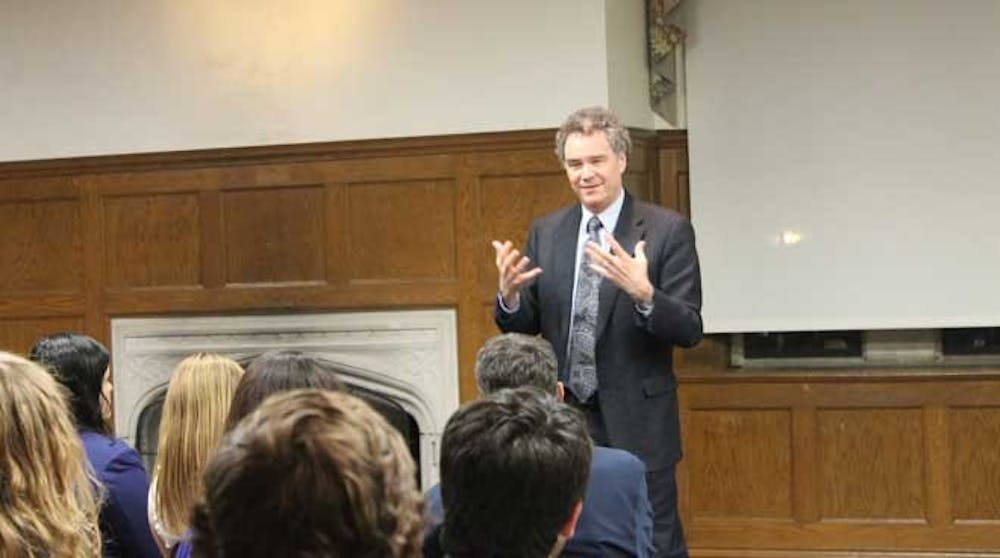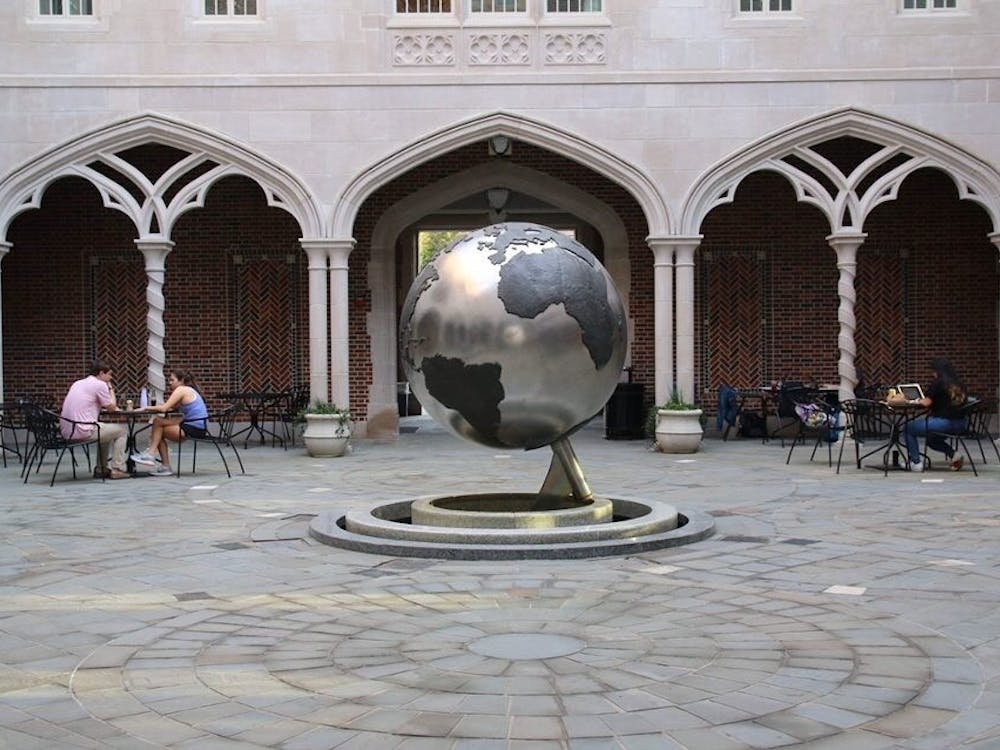The Pi Alpha chapter of Mortar Board honor society hosted its annual President's Forum, "What's Next for UR," on Wednesday, Feb. 20, in the Keller Hall Reception Room.
About 30 students attended for a discussion with the keynote speaker, University President Edward Ayers.
The main topic of discussion was the university's plan for an ever-growing endowment of $30 million to give every student the opportunity for a paid summer fellowship or internship as part of "The Richmond Promise," the five-year plan created to improve a student's time at the university. Ayers discussed his current and future plans for campaigning to alumni to earn funds and the employer relationships necessary to give students these opportunities. He said the fellowships would be flexible and could be used to help students explore careers, fund research or allow them to travel abroad if they did not have time during the school year.
Tuition costs would not be affected, and he considered the fellowships to be something students were entitled to as part of the cost to attend the university, Ayers said.
Students will still have to compete with each other by applying for the fellowships and could be rejected, Ayers said. There are 230 fellowships being offered for this summer, and Ayers said he thought 330 fellowships were possible for next year. He said the current fellowship offered up to $3,000, but the ones planned would offer up to $4,000.
Omicron Delta Kappa president and senior Natalie Clark said she was pleased to hear about the increase in fellowship funding. Clark said she was a science major and that her research lab had been cut by more than half because of the lack of funds. She said these fellowships were a good way to expand lesser-known labs and finance various projects.
Delta Gamma fraternity president and junior Erin Goupill said she thought the summer fellowship initiative was an exciting program that would allow university administrators to compete for the best and brightest students.
The future of technology on campus was also discussed. A few students said that the university leaders should not put money toward technology when there were so many digital resources already available.
The student leaders fielded questions on a range of topics, including the lack of school spirit for athletic teams, what Ayers thought about FYS classes versus CORE classes and why he did not attend more student performances.
Planning for the event began last summer when Ayers invited the leaders of Mortar Board to meet with him, said Lauren Henry, president for Mortar Board. In September, the members went in to the meeting with a few ideas, and together with Ayers, decided on a topic they thought was relevant.
"What's Next for UR?" was created to discuss the future of the university because 2014 will be the centennial year of the coordinate college system being established in 1914, Henry said.
The goals of the forum were to discuss plans for technology, tuition and the university's relationship with the city community, Henry said.
Enjoy what you're reading?
Signup for our newsletter
Mortar Board invited the leaders from every student organization on campus to attend the event. About 140-150 student leaders were invited this year, Henry said. Mortar Board's vice president Jenny Jarboe said they had received about 60 RSVPs, representing 35 student organizations.
"All of the student organization leaders are such a diverse group of people who are invested in UR," Henry said "It's good for President Ayers to hear their comments, but good for the leaders, as well, to hear plans for the university."
"My point in being here is to learn from you folks," Ayers said.
Contact reporter Renee Ruggeri at renee.ruggeri@richmond.edu
Support independent student media
You can make a tax-deductible donation by clicking the button below, which takes you to our secure PayPal account. The page is set up to receive contributions in whatever amount you designate. We look forward to using the money we raise to further our mission of providing honest and accurate information to students, faculty, staff, alumni and others in the general public.
Donate Now



